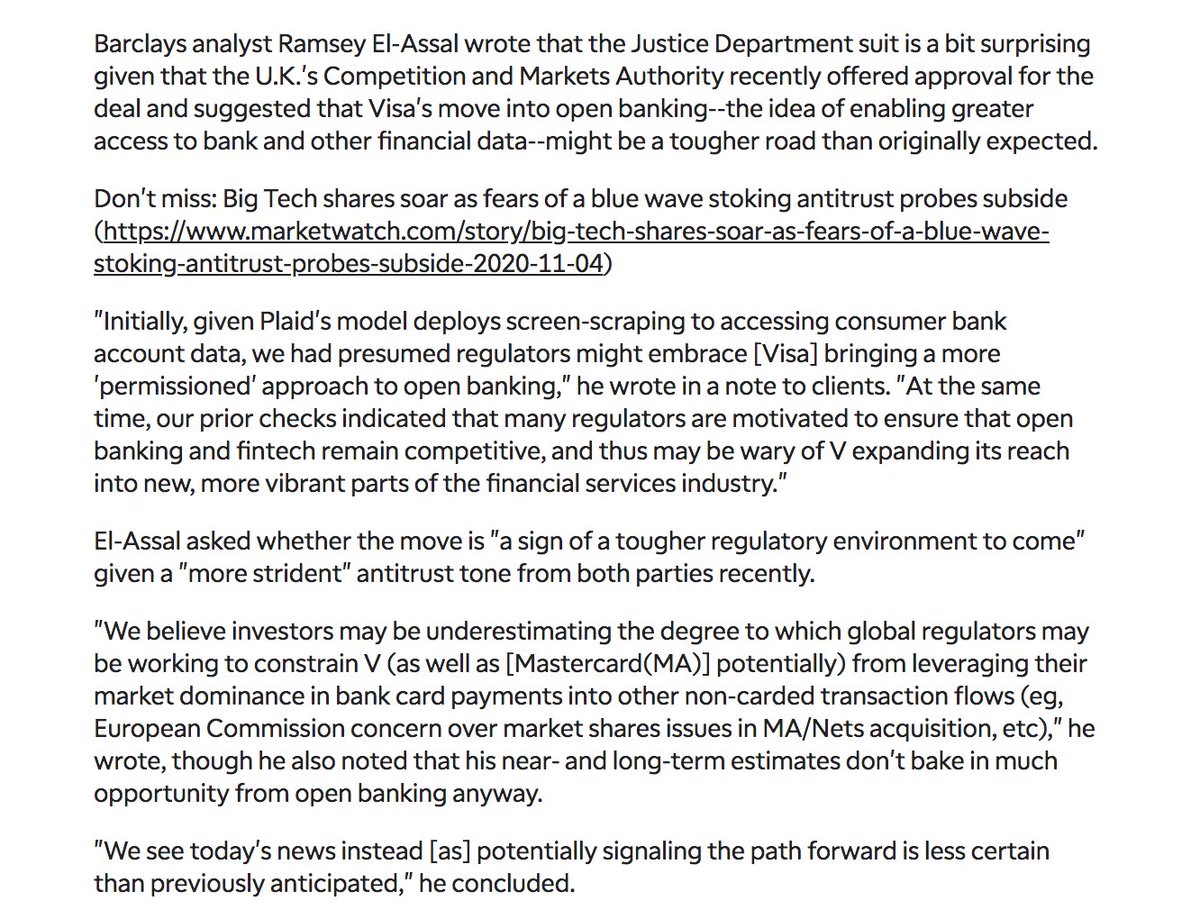I'm rather surprised to read this for a couple reasons:
1. the Visa I knew is highly sensitive to anti-trust considerations and typically steers clear of conflict
2. ACH is not new and acquiring Plaid doesn't turn Visa into an ACH monopolist;
1/n https://twitter.com/Kr00ney/status/1324380754374238211
1. the Visa I knew is highly sensitive to anti-trust considerations and typically steers clear of conflict
2. ACH is not new and acquiring Plaid doesn't turn Visa into an ACH monopolist;
1/n https://twitter.com/Kr00ney/status/1324380754374238211
IMHO, for Visa to telegraph a strategy around "neutralizing a threat" would be very out of character, bordering on careless. There are a lot of thoughtful, smart people at Visa, and there's a lot of sensitivity towards monopolistic or duopolistic perception & practices.
2/
2/
As for the ACH component, Visa has no meaningful foothold there - and as far as I know, neither does Plaid.
Plaid helps verify bank account info, but it doesn't *process* ACH (i.e. move money). For that they have partners like Dwolla & Plaid.
3/
Plaid helps verify bank account info, but it doesn't *process* ACH (i.e. move money). For that they have partners like Dwolla & Plaid.
3/
Granted my view is colored by my experience, but this feels like an over-reach to me.
Visa is a large, highly visible target, and when they buy a company for $5.3B, it raises eyebrows and regulators start to wonder "what does Visa know that I don't?"
4/
Visa is a large, highly visible target, and when they buy a company for $5.3B, it raises eyebrows and regulators start to wonder "what does Visa know that I don't?"
4/
I think the take from Barclay's analyst Ramsey El-Assal is pretty good. Visa's move into open banking and anything to do with ACH is a lot more difficult than people imagine, even with a Plaid acquisition.
The upside, tho, is more structured & consistent access to bank accts
5/
The upside, tho, is more structured & consistent access to bank accts
5/
Anyway... this will be an interesting one to watch. I still think Visa + Plaid makes a ton of sense and could be good for the market and consumers. Forging a path to better digital banking access is hard enough given existing market forces without regulator involvement.
6/6
6/6
Ugh. I meant ACH processing "...partners like Dwolla & *Stripe*"
Careless typo https://twitter.com/peter/status/1324415327145357318
https://twitter.com/peter/status/1324415327145357318
Careless typo
 https://twitter.com/peter/status/1324415327145357318
https://twitter.com/peter/status/1324415327145357318

 Read on Twitter
Read on Twitter


